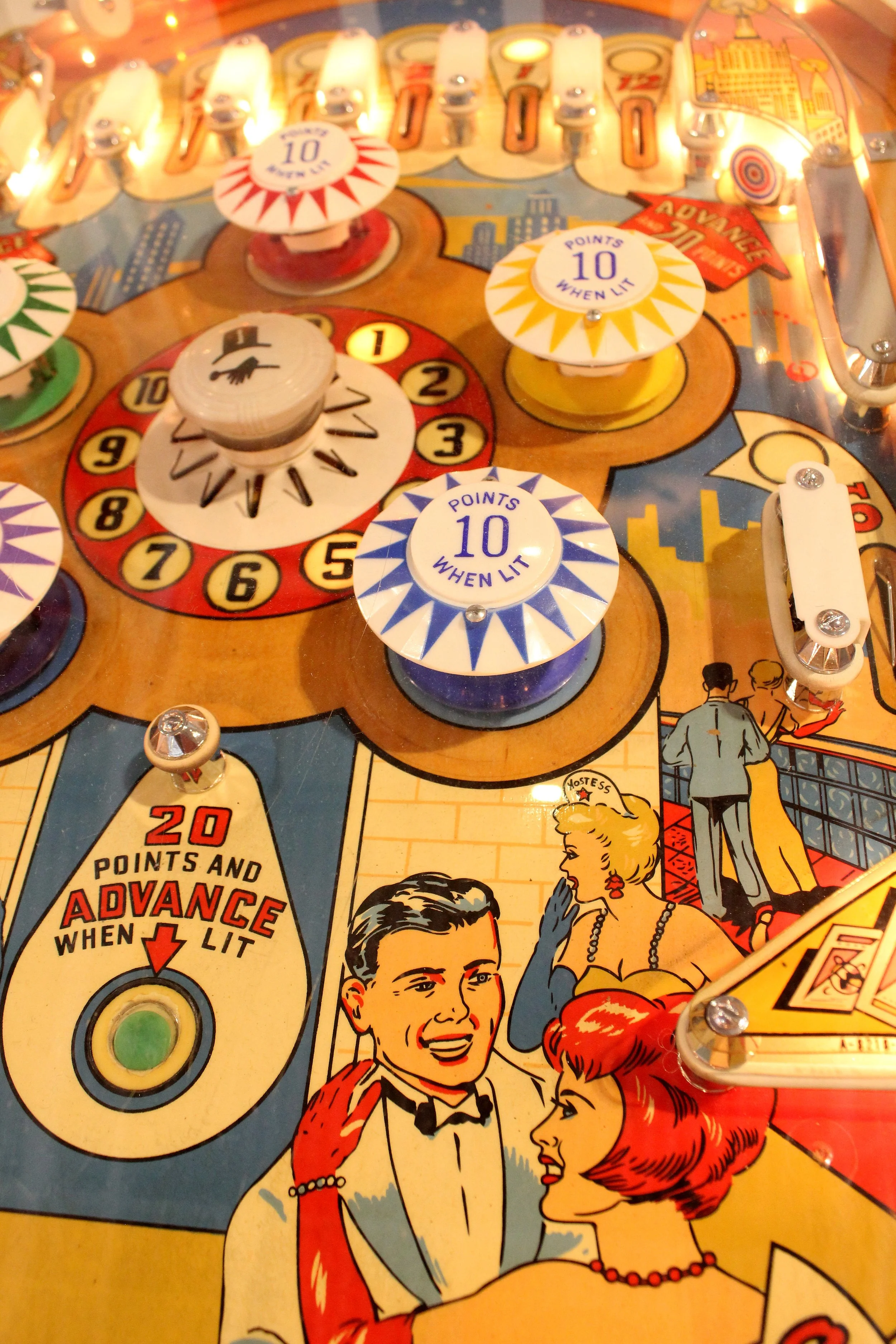III. Pinball Pleasures
Full Tilt
Group of men playing a pinball Machine at Steelworkers' Serbian Club in Aliquippa, Pennsylvania (1941).
While a recession typically means bad news for the economy, for the coin-op industry, it's often a time of growth and opportunity. When manufacturing hit hard times during the Great Depression, places like Chicago were uniquely positioned to take advantage of a skilled workforce and sudden abundance of cheap factory space. As new manufacturers began producing low-cost amusement games, innovation soon followed and the pin table game (or pinball as it would eventually be known) was born.
Based in part on the French game of bagatelle, coin-operated pin games proliferated through the 1930s as a new craze took hold. Routinely sold for less than $20, pinball ushered in a whole new generation of entrepreneurs as the popularity and repeatability of gameplay often meant high return on investment. The game was such a success that it would oftentimes pay for itself in little more than a weekend if placed in the right location.
“I bought a machine for $25 in 1946 and built a small empire out of it. It was the best business I was ever in.”
WARREN BUFFETT
Two friends have a beer and work the flippers on a modern pinball machine.
Over the decades, pinball continued to evolve with technological innovations like flippers, multiball, electronic scoring and sophisticated rules, transforming it from a simple game of chance into a complex game of skill. Today, pinball is experiencing a remarkable renaissance, with both established manufacturers like Stern Pinball and newer companies such as Jersey Jack Pinball, Spooky Pinball, and American Pinball creating innovative new machines that blend classic mechanical action with modern technology and licensed themes. Despite our increasingly digital landscape, these “world’s under glass” continue to captivate players with their unique blend of kinetic engineering and artful design.
